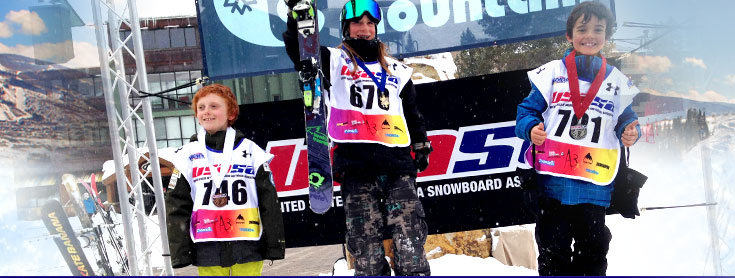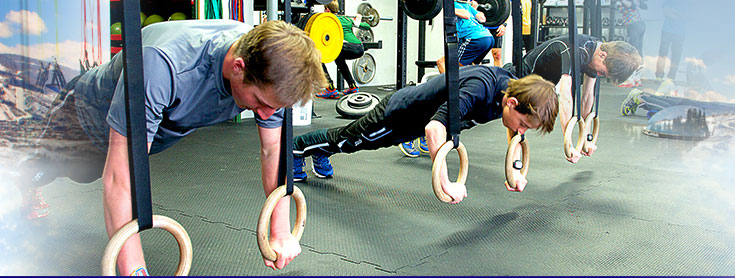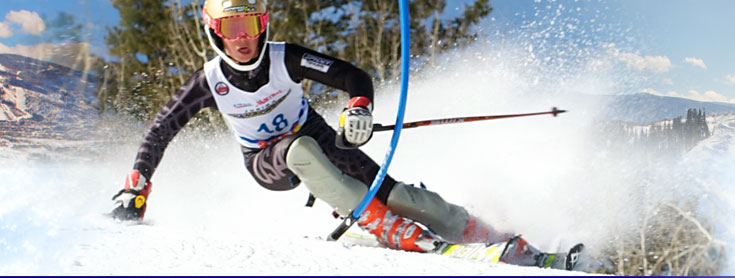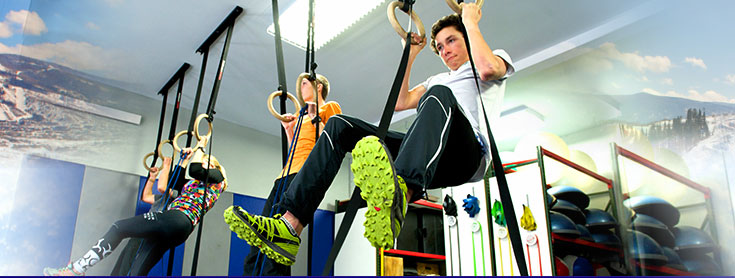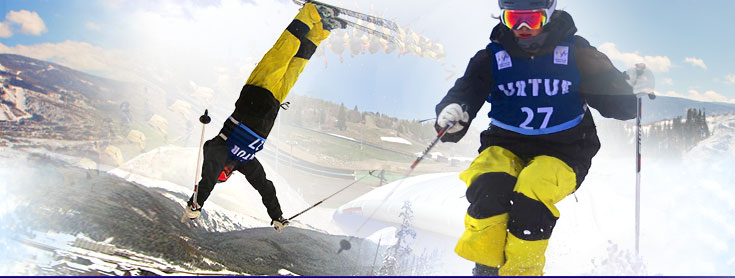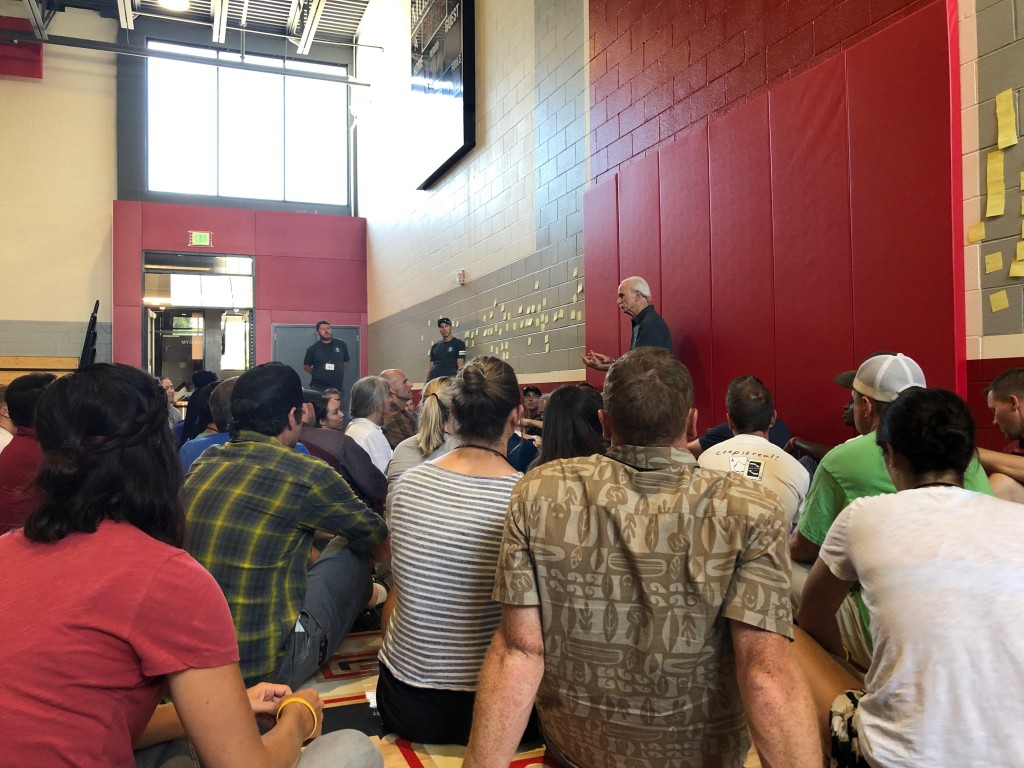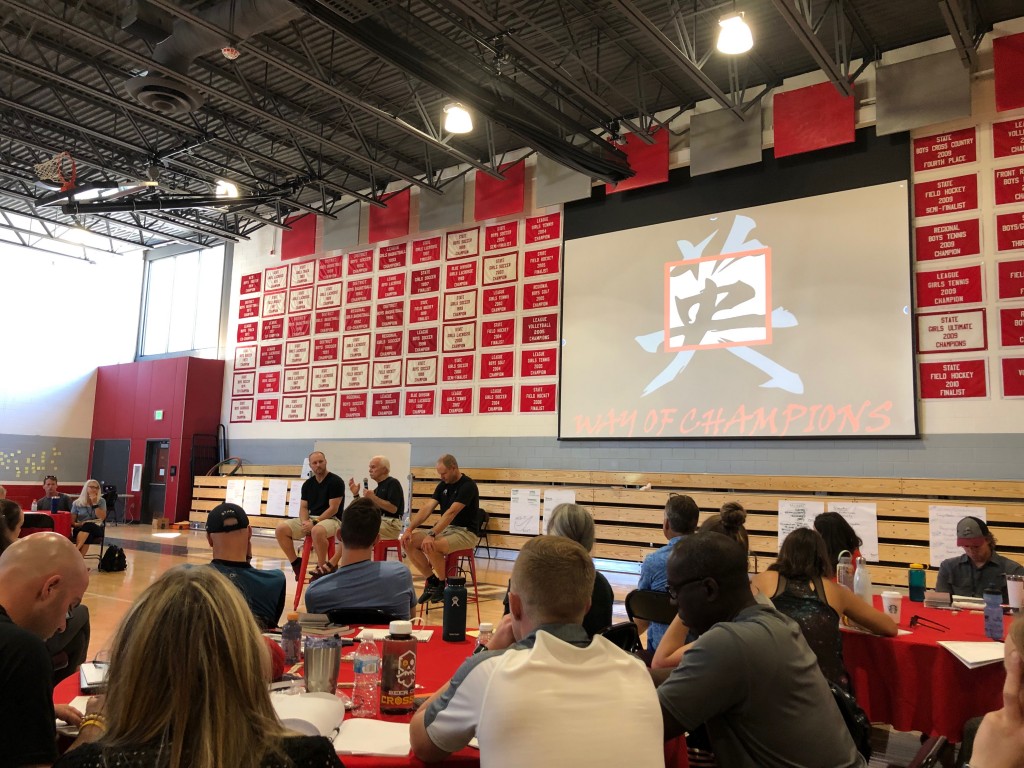Continuing Coach Education: Way of Champions
A group of seven SSWSC coaches attended the ‘Way of Champions’ conference in Denver this past weekend, and it was a valuable experience for us all. The fundamental message of the conference was that the culture of a team – how our athletes feel, and what our shared values, purpose and goals are – is critical for a team to perform at the highest level. Also, they emphasized the value of sport to teach important values such as teamwork, resiliency, hard work and fair play. Both concepts resonate with the SSWSC core values and our mission to develop ‘the complete athlete, both on and off the mountain.
We are all working with a generation of young people who seem to increasingly demand that their opinions and feelings be validated, that they are respected, and that they are empowered. The lessons of the conference give us tools for communicating with these athletes and coaching them to their potential. These principles are also in perfect alignment with the SSWSC core values AND the most successful coaches I know have coaching philosophies that are consistent with this approach. As a coach I strived to coach in this way, but know I often fell short. Even if your coaching philosophy is different, I recommend you review and consider the lessons of this conference.
Here are some key takeaways from the conference:
• Core Values: Coaches should establish their core values as a person and root their coaching practices on these values, putting the person before the athlete.
• R.I.V.E.R: Relevant, Inspired, Validated, Empowered, Respected. To perform at their peak and contribute to a championship team, athletes need these five things, consistently.
• L.U.V.: Listen, understand, validate. Athletes respect, listen to, and respond to coaches who do these three things.
• Feeling = Function: How athletes feel (about a coach, their team, themselves) is directly related to how they perform.
• Catch an Athlete Doing Something Right: To foster the behaviors you want in an athlete or team, don’t point out only what is wrong, recognize when someone does something right.
• Culture: Championship team culture never happens by accident. It takes work, every day.
Conference organizer John O’Sullivan lists the below ten principles that great coaches have taught him:
1. Champions know that “Well done is better than well said.” Ben Franklin said it first; champion’s actions say it every day.
2. Champions possess fearlessness; they are unafraid to come up short and understand that adversity and even failure are opportunities to learn. Ordinary people are far too worried about what people will say about them when they come up short, so they never really go all in.
3. Champions have a tenacious focus on the process, the grind, that daily and weekly commitment to excellence. Ordinary people focus on the outcome and love to point fingers when it does not go their way. Champions find joy in the crucible.
4. Champions control the controllable. While the not-quite-champs complain about officials, or field conditions, or bad coaching decisions, or cheating opponents, champions get back to work. They take care of their own house: show up early, stay late, focus on the process, get 1% better every day.
5. Champions see the opponent as their partner in achieving excellence. The word competitor is derived from the latin word meaning “seek together.” Opponents are not to be feared or hated; they are fellow travelers on this amazing journey.
6. Champions ask not “what can I get from my team” but “what can I give?” I can give 100% effort every single day. I can give my team a positive attitude, I can give my team a better chance to win not matter what position I play, or how many minutes I earn.
7. Champions have the will to prepare relentlessly in case their big moment ever comes. They are committed to being ready when the universe says “it’s your time.” Not-quite champs hope that big moments don’t present themselves in “the offseason.” Everyone wants to do what it takes on game day to win; champions are willing to do what it takes six weeks, six months, even six years before kickoff.
8. Champions are humble. Just like the two-time defending world rugby champion New Zealand All Blacks, they “Sweep the Shed’ and are never afraid to do all the little things it takes to be at the top. Not-quite- champs, on the other hand, leave the picking up of cones, or carrying the water jug, to the underclassmen and the bench players, because, well, “I have earned the right to not do my part.”
9. Champions don’t focus on winning; they focus on competing. Every. Single. Day. They are willing to do, and likely have already done, what others hate to do, and consistently avoid.
10. Champions understand that excellence is a way of being, not something you do. Your habits are a way of being. Your attitude, love of teammates, and celebration of the success of others is a way of being. Your joy in play is a way of being. Your mindfulness and accountability is a way of being. You are a human being, not a human doing.
I’d love to talk with any of you about the conference and also please reach out to the coaches representing your programs for ideas for how we can implement these lessons to improve our programs. For more information, check out these resources:
• Way of Champions website
• Way of Champions podcast
• Changing the Game Project
Dave Stewart
Athletic Director
Steamboat Springs Winter Sports Club






